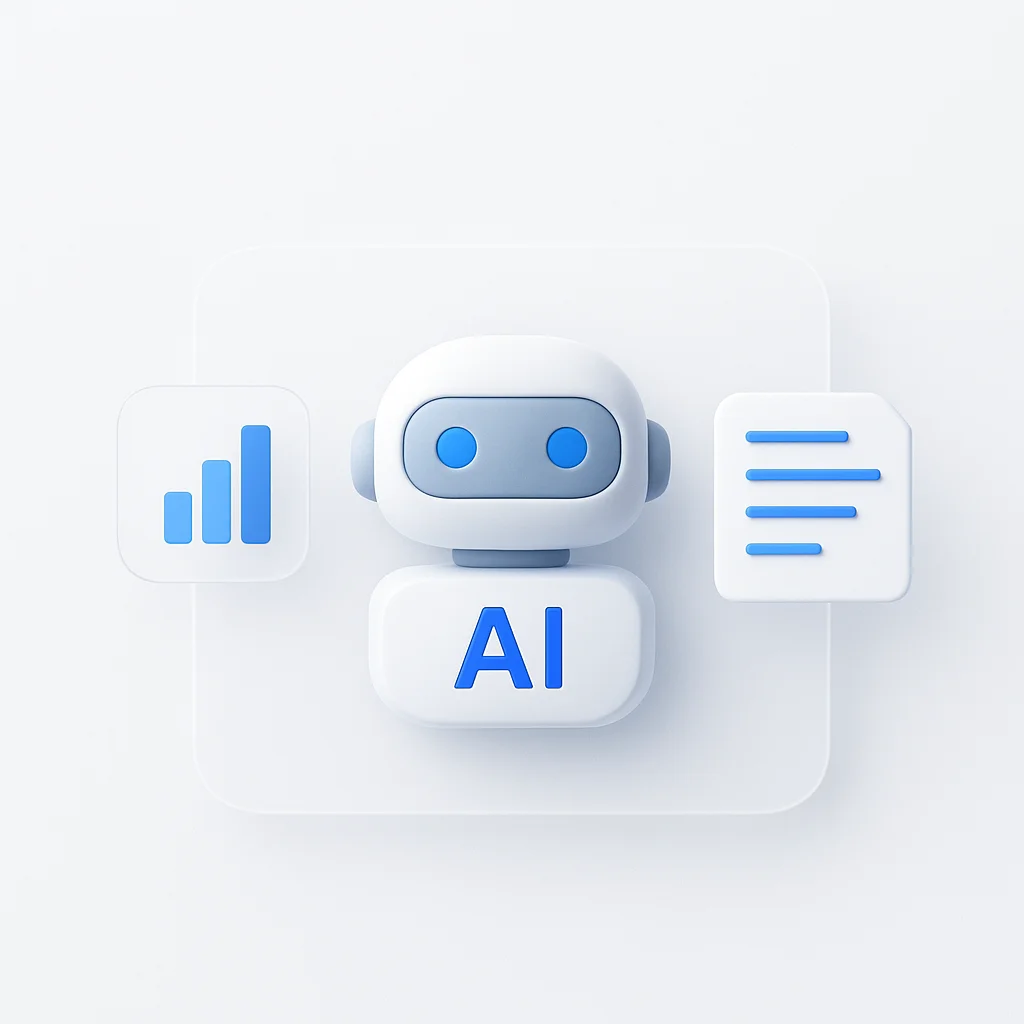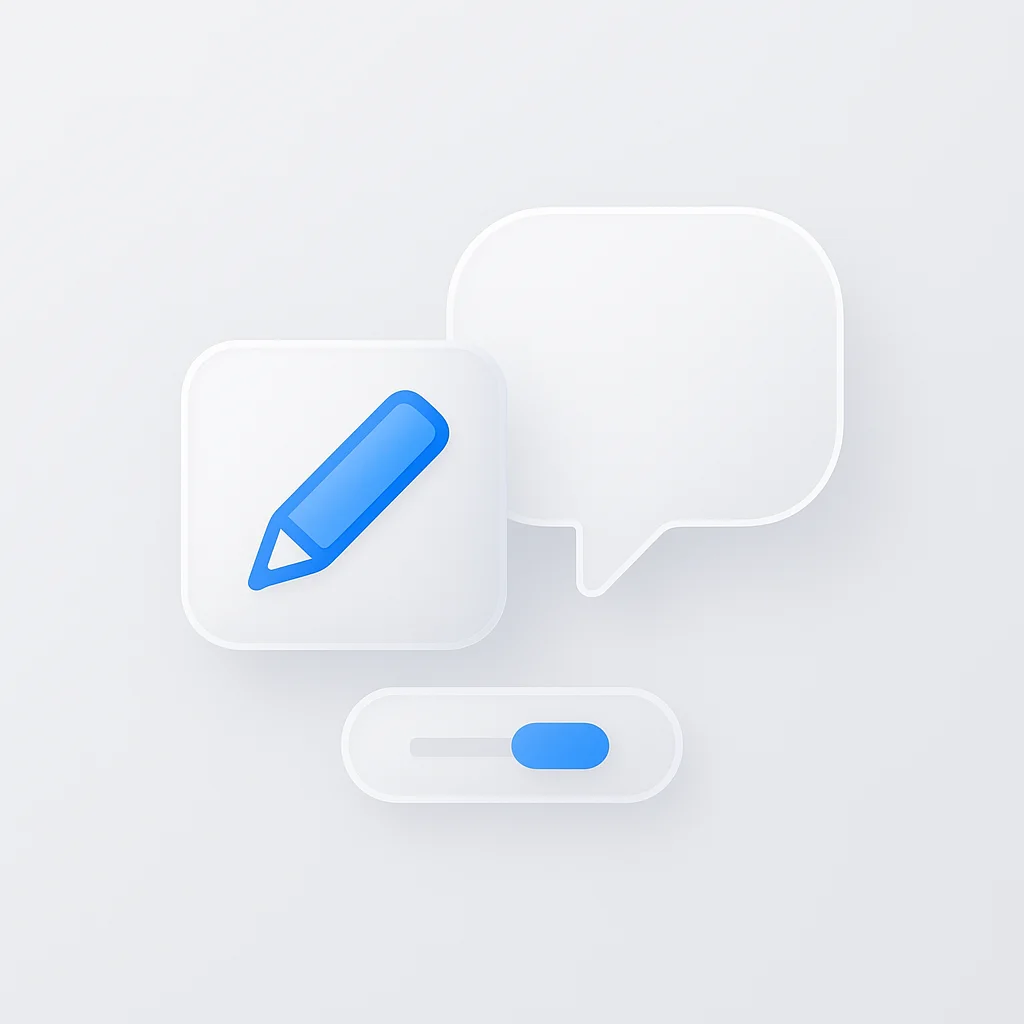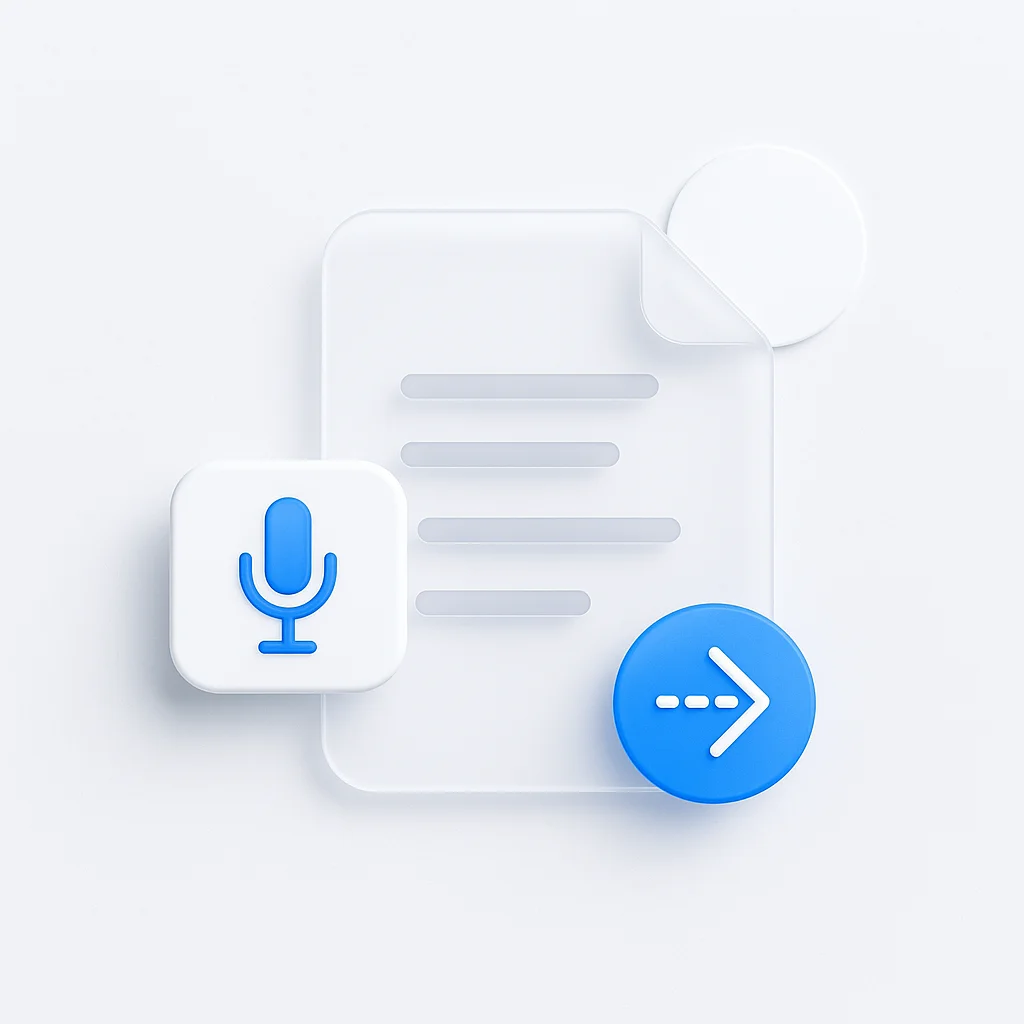Drowning in a sea of academic papers? Struggling to make sense of complex datasets? Or facing the dreaded blank page for your research proposal? In 2025, the manual, time-consuming methods of research have been fundamentally transformed.
The best AI tools for research are no longer just grammar checkers. They are powerful assistants that can accelerate your literature review, perform complex data analysis from plain English prompts, and streamline your paper writing process from start to finish.
This guide breaks down the 10 best AI tools, categorized by their function in the research workflow, to help you find the perfect assistant for your academic, scientific, or business research needs.
Quick Picks: The Best AI Tool for Your Research Task
| Best For | Tool Name | Why It Wins |
|---|---|---|
| Literature Review & Discovery | Elicit / Scite.ai | Finds relevant papers and extracts key insights automatically |
| ”Chat with Your Data” Analysis | Julius AI | Analyze spreadsheets and create visualizations using plain English |
| Writing & Drafting | ChatGPT / Claude | Best all-around for drafting, brainstorming, and refining text |
| Sourced Answers (All-in-One) | Perplexity AI | An “answer engine” that synthesizes information and cites sources |
Quick Recommendations: Best AI Research Tools by Budget
Best Free Option
Perfect for students and budget-conscious researchers
Best Value
Maximum features for reasonable investment
Best Premium Setup
Complete research workflow automation
How We Evaluated AI Research Tools
We tested each tool based on comprehensive criteria to ensure our recommendations meet the diverse needs of researchers across different disciplines and experience levels:
🔍 Accuracy & Reliability
How well the tool provides accurate, verifiable information and avoids AI hallucinations
⚡ Speed & Efficiency
Time savings compared to traditional research methods and overall workflow optimization
🎯 Use Case Specificity
How well the tool serves its intended research purpose and target audience
💰 Value for Money
Cost-effectiveness relative to features, quality, and time savings provided
🛠️ Ease of Use
User interface quality, learning curve, and accessibility for researchers of all levels
🔗 Integration & Export
Ability to work with existing research workflows and export data in useful formats

Full Comparison: 10 Best AI Research Tools 2025
| Tool | Category | Best For | Key Feature | Free Tier | Price (USD) |
|---|---|---|---|---|---|
|
Elicit
|
Literature Review | Systematic literature reviews | Automated paper analysis & synthesis | YES | $10/mo |
|
Scite.ai
|
Literature Review | Research validation | Smart citations & reliability scoring | NO | $20/mo |
|
Consensus
|
Literature Review | Evidence-based answers | Direct extraction from peer-reviewed papers | YES | $15/mo |
|
Perplexity AI
|
Literature Review | Initial research exploration | Real-time information synthesis with citations | YES | $20/mo |
|
Julius AI
|
Data Analysis | Conversational data analysis | Natural language queries for spreadsheets | NO | $25/mo |
|
Akkio
|
Data Analysis | No-code machine learning | Drag-and-drop predictive modeling | NO | $50/mo |
|
ChatGPT-4o
|
Writing | General research writing | Versatile writing assistance & brainstorming | YES | $20/mo |
|
Claude 3.5
|
Writing | Long document analysis | 200K+ token context for large documents | NO | $20/mo |
|
Paperpal
|
Writing | Academic writing optimization | Journal-specific formatting & grammar | NO | $15/mo |
|
Zotero
|
Reference Management | Comprehensive reference management | AI-powered PDF summarization & organization | YES | $20/year |
Top 10 AI Research Tools in 2025 (By Research Stage)
📚 Category A: Literature Review & Discovery
AI tools that revolutionize how you find, analyze, and synthesize academic literature
1. Elicit
Best for: Systematic literature reviews and research synthesisElicit stands out as an AI research assistant that finds relevant papers and creates summarized tables of key findings from literature. According to ResearchGate studies, AI-powered literature review tools can reduce review time by up to 70%.
Key Features:
- Automatically extracts findings from research papers
- Creates structured tables comparing studies
- Identifies research gaps and patterns
- Supports multiple academic disciplines
- Advanced filtering and search capabilities
Pros
- Significantly reduces literature review time
- High accuracy in extracting key findings
- Excellent for systematic reviews
- Free tier with generous limits
- User-friendly interface
Cons
- Limited to published research papers
- May miss some niche or newer studies
- Requires verification of extracted data
- Advanced features require paid plan
2. Scite.ai
Best for: Research validation and citation analysisScite.ai revolutionizes how we understand research impact by showing how papers have been cited, indicating whether they’ve been supported or contrasted by subsequent studies through “Smart Citations.”
Key Features:
- Smart citations showing support/contradiction
- Research reliability indicators
- Citation context analysis
- Manuscript preparation assistance
- Real-time citation tracking
Pros
- Unique citation analysis approach
- Helps identify research credibility
- Excellent for validating sources
- Comprehensive database coverage
- Advanced filtering options
Cons
- Higher price point
- Learning curve for advanced features
- Limited free access
- May not cover all disciplines equally
3. Consensus
Best for: Evidence-based research questionsConsensus uses AI to extract findings directly from published research, providing evidence-based answers to research questions with scientific backing.
Key Features:
- Direct extraction from peer-reviewed papers
- Evidence synthesis from multiple sources
- Quality scoring of research findings
- Topic trend analysis
- Natural language query interface
Pros
- Direct answers from scientific literature
- High-quality evidence synthesis
- Easy-to-use interface
- Good free tier
- Fast response times
Cons
- Limited to published research
- May not cover all research areas
- Requires verification of answers
- Advanced features need subscription
4. Perplexity AI
Best for: Initial research exploration and background informationPerplexity AI serves as an “answer engine” that synthesizes information from web and academic sources, providing direct answers with proper citations—perfect for initial background research.
Key Features:
- Real-time information synthesis
- Source citation for all claims
- Multi-format content analysis
- Follow-up question suggestions
- Academic and web source integration
Pros
- Comprehensive information synthesis
- Always cites sources
- Excellent for background research
- User-friendly interface
- Good free tier
Cons
- May include non-academic sources
- Requires fact-checking
- Limited to available web content
- Advanced features require subscription
📊 Category B: Data Analysis
AI-powered tools for quantitative analysis, visualization, and statistical modeling
5. Julius AI
Best for: Conversational data analysis without codingJulius AI allows researchers to upload spreadsheets or CSVs and analyze data by asking questions in plain English. It can create charts, run statistical analyses, and write Python code automatically.
Key Features:
- Natural language data queries
- Automatic chart and visualization generation
- Statistical analysis capabilities
- Python code generation for complex analyses
- Real-time data processing
Pros
- No coding knowledge required
- Intuitive natural language interface
- Powerful visualization capabilities
- Generates reusable Python code
- Fast analysis turnaround
Cons
- Higher price point
- Limited to structured data
- May not handle complex statistical models
- Requires data preprocessing
For researchers working with video data or interview transcripts, ScreenApp’s AI summarizer provides similar conversational analysis capabilities for qualitative research content.

6. Akkio
Best for: No-code machine learning and predictive analyticsAkkio is a no-code AI platform for building and deploying machine learning models, excellent for predictive analysis in business research and academic studies requiring advanced analytics.
Key Features:
- Drag-and-drop model building
- Predictive analytics capabilities
- Real-time data processing
- Integration with popular data sources
- Automated model deployment
Pros
- No machine learning expertise needed
- Powerful predictive capabilities
- Easy model deployment
- Good for business research
- Comprehensive data integration
Cons
- Expensive for individual researchers
- Limited to structured data
- May oversimplify complex models
- Requires significant data preparation
✍️ Category C: Writing, Summarizing & Citing
AI assistants for academic writing, document analysis, and reference management
7. ChatGPT-4o
Best for: General research writing and brainstormingChatGPT-4o remains the best all-around tool for drafting sections of research papers, brainstorming ideas, improving clarity, and overcoming writer’s block. Pew Research indicates that 24% of researchers now use AI for writing assistance.
Key Features:
- Versatile writing assistance across all research stages
- Idea generation and brainstorming
- Text refinement and clarity improvement
- Multiple format support (emails, proposals, papers)
- Real-time collaboration features
Pros
- Most versatile AI writing tool
- Excellent for brainstorming
- Good free tier available
- Wide range of applications
- Regular updates and improvements
Cons
- May generate incorrect information
- Limited academic writing specialization
- Requires careful fact-checking
- No built-in citation management
8. Claude 3.5
Best for: Long document analysis and comprehensive summariesClaude 3.5 is known for its exceptionally large context window, making it the best tool for summarizing very long documents, research papers, or books—a crucial capability for comprehensive literature reviews.
Key Features:
- 200,000+ token context window
- Excellent document summarization
- Multi-document analysis capabilities
- Academic writing style adaptation
- Advanced reasoning capabilities
Pros
- Largest context window available
- Excellent for long documents
- Strong reasoning capabilities
- Good for complex analysis
- Academic writing expertise
Cons
- Higher price point
- May be slower than other tools
- Limited free access
- Requires subscription for full features
For researchers working with recorded interviews or lectures, ScreenApp’s transcript summarizer offers similar capabilities for audio and video content, automatically generating timestamped summaries of research recordings.
9. Paperpal
Best for: Academic writing optimization and journal submissionPaperpal is an AI-powered writing assistant specifically trained for academic language, grammar, and style, ensuring manuscripts are submission-ready for peer-reviewed journals.
Key Features:
- Academic language enhancement
- Journal-specific formatting
- Grammar and style optimization
- Citation format verification
- Plagiarism detection
Pros
- Specialized for academic writing
- Journal-specific recommendations
- Excellent grammar checking
- Citation verification
- Plagiarism detection included
Cons
- Limited to academic writing
- May be overly conservative
- Requires subscription
- Limited free trial
10. Zotero with AI Features
Best for: Comprehensive reference management and collaborationZotero and Mendeley now include AI features to automatically summarize PDFs and organize citations, streamlining the research workflow from collection to publication.
Key Features:
- Automatic PDF summarization
- Smart citation organization
- Research note integration
- Collaborative research support
- Cross-platform synchronization
Pros
- Comprehensive reference management
- Excellent collaboration features
- Good free tier
- Cross-platform compatibility
- Strong community support
Cons
- Learning curve for advanced features
- AI features still developing
- May require manual cleanup
- Limited AI summarization quality
How to Use AI to Write a Research Proposal (A Mini-Workflow)
Brainstorm & Refine Topic (ChatGPT)
Use it to narrow down your research question and define your scope with AI-guided questioning.
Conduct Initial Literature Review (Elicit)
Find foundational papers and identify gaps in current research with automated paper discovery.
Draft Proposal Sections (Claude)
Upload key papers and structure your introduction, methodology, and expected outcomes.
Polish & Cite (Paperpal/Zotero)
Refine academic language and handle all citations with automated formatting.
For researchers working with interview data or focus groups, incorporating ScreenApp’s research transcription service into this workflow can help transcribe and analyze qualitative data with 99% accuracy, automatically identifying speakers and adding timestamps for deeper analysis.
Advanced Research Scenarios: When to Use Which Tool
Understanding when to deploy specific AI tools can significantly impact your research efficiency. Here’s a strategic breakdown:
📊 Quantitative Research Projects
For research involving numerical data, statistical analysis, and measurable outcomes.
Step 1: Data Exploration
Start with Julius AI for initial data exploration and visualization
Step 2: Predictive Modeling
Scale up with Akkio for advanced predictive modeling
Step 3: Documentation
Document methodology with ChatGPT for clear writing
📝 Qualitative Research Projects
For research involving interviews, observations, and thematic analysis of non-numerical data.
Step 1: Background Research
Begin with Perplexity AI for comprehensive background research
Step 2: Thematic Analysis
Analyze long documents with Claude 3.5 for thematic insights
Step 3: Source Management
Organize references with Zotero for systematic management
🔄 Mixed-Methods Research
For research combining both quantitative and qualitative approaches for comprehensive analysis.
Step 1: Literature Review
Use Elicit + Scite.ai for comprehensive literature review
Step 2: Data Collection
Record and transcribe with ScreenApp for interview analysis
Step 3: Integrated Analysis
Combine Julius AI + Claude 3.5 for comprehensive analysis
Step 4: Academic Writing
Polish with Paperpal for publication-ready writing
Frequently Asked Questions
The Future of AI in Research: Trends to Watch
As we look toward the future of research methodology, several transformative trends are emerging that will fundamentally reshape how researchers work and collaborate.
🔬 Integration with Laboratory Equipment
AI is increasingly integrating with lab instruments for automated data collection and analysis. Recent studies in Science demonstrate how AI can enhance experimental precision and reduce human error.
🤝 Collaborative AI Networks
Multiple AI tools working together to provide comprehensive research support, from literature review to publication. These networks can coordinate tasks and share insights across different research phases.
⚡ Real-time Peer Review
AI systems that can provide instant feedback on research methodology and findings quality. These tools can identify potential issues before submission and suggest improvements.
⚖️ Ethical AI Frameworks
Enhanced guidelines ensuring responsible AI use in academic research, maintaining human oversight in critical decision-making. These frameworks address bias, transparency, and accountability.
Conclusion
In 2025, AI has become an indispensable research assistant. Tools like Elicit and Scite.ai are revolutionizing the literature review process, while Julius AI makes complex data analysis accessible to everyone. The key is not to replace human intellect, but to augment it, allowing you to produce higher-quality research, faster.
For researchers looking to integrate AI into their workflow, we recommend starting with this progression:
- Begin with Perplexity AI for initial research exploration
- Add Elicit for systematic literature reviews
- Incorporate ChatGPT or Claude for writing assistance
- Scale up with specialized tools like Julius AI for data analysis
For researchers working with video interviews, focus groups, or recorded lectures, consider integrating ScreenApp’s AI-powered research tools into your workflow for comprehensive qualitative data analysis.
The research landscape is evolving rapidly, but with the right AI tools, you can stay ahead of the curve while maintaining the rigor and integrity that defines quality research.
What’s the one research task you wish AI could completely automate for you? The tools are here—the question is how you’ll use them to advance your research goals.



